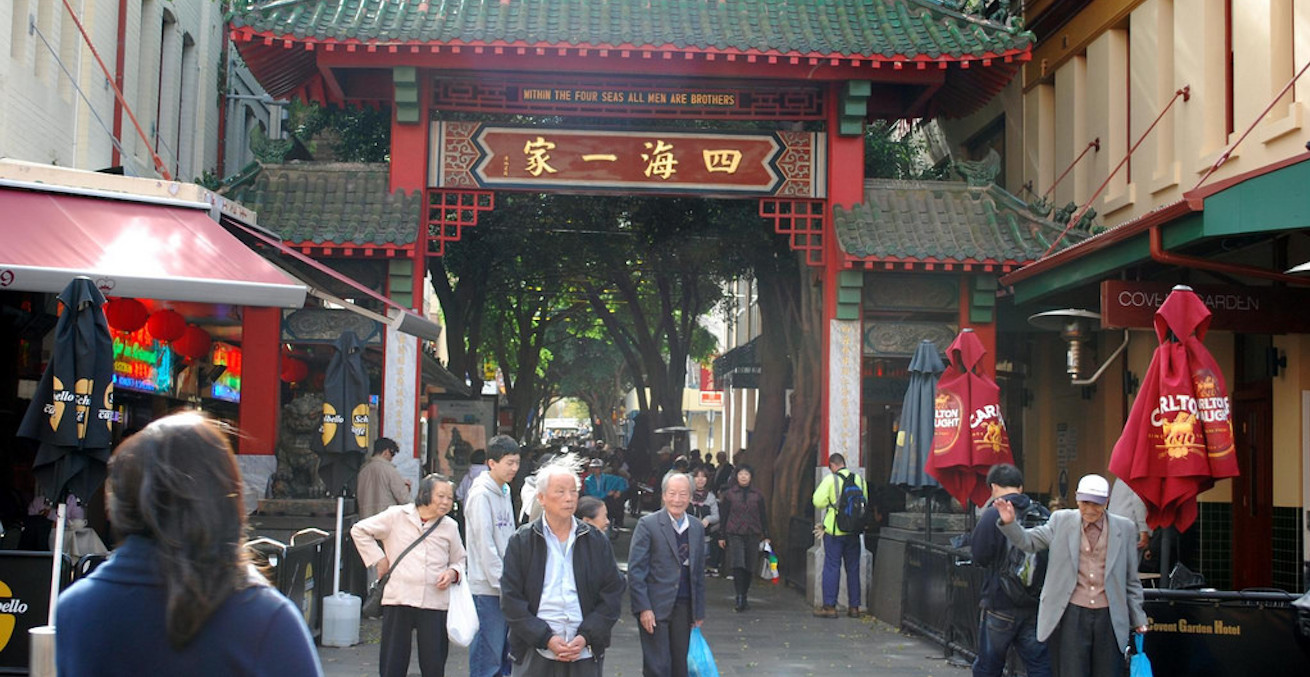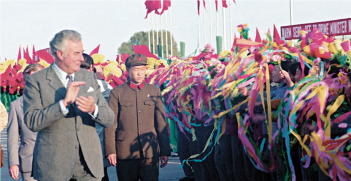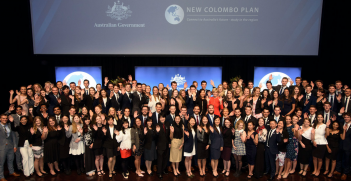Four Waves of Australia's Relationships: UK, US, Japan and China

Waves of foreign investment and trade have been essential features of Australian development. In our burgeoning relationship with China, we have for the first time an agency of the Australian government effectively undermining our relationship with our major trading partner.
Waves of foreign investment and trade have been essential features of Australian development since 1788. The waves began with the UK, then the US, then Japan and now China. In each of these waves the Australian government has consistently managed the economic and strategic ties that were involved, despite difficulties from time to time. In our burgeoning relationship with China, we have for the first time an agency of the Australian government deliberately doing damage to our major trading partner.
By 2015, the major direct investments in Australia by source were, broadly, US $A170 billion; Japan $A80 billion; the UK $A70 billion and China $A35 billion. The investment from China is of course growing rapidly each year.
Our relationship with the UK from 1788 to 1942 had both strong economic, as well as defence links. The British navy ruled the waves. The relatively comfortable nexus in the relationship with the UK in both trade and defence was sundered with the surrender of the UK to the Japanese in Singapore in 1942. But overall it was a fairly comfortable relationship, except that we became drawn into England’s wars.
The major economic and defence link with the US commenced with the defeat of the British in Singapore. That relationship with the US continues. Most Australians have been comfortable with the relationship between the US and ourselves in both economic and defence areas. We were engulfed by US life style as projected in media , TV and film. But again as with the UK, our association with the US drew us into disastrous foreign wars, in this case Vietnam and the continuing wars in the Middle East.
In this relationship with the US, we were also concerned from time to time about US control of key industries and export restrictions . But we learned to live with that downside in the US relationship. Only more recently have some Australians begun to express concern about the violent nature of the US both at home and abroad, and its continuous involvement in war and subversion.
The third wave of trade and investment with Japan from the 1960s onwards was different. Japan was not a defence ally like the UK and the US. It was also a non-Anglo-Celtic country. But we were less concerned about possible Japan expansionism because of the continuing power of the US navy in the Pacific. The ANZUS treaty was negotiated with the Japanese threat in mind, but it has been amplified and expanded to mean all sorts of other things.
This Japanese wave of trade and investment brought considerable benefits, despite some opposition, in this case from some elements of the RSL. Perhaps that was not surprising in view of the threat from Japan in WWII and the treatment of Australian prisoners of war. On the Japanese side, the legacy of White Australia remained for many years, which always sounded to me quite ridiculous given Japan’s racist policies towards almost all foreigners. But the Japan-Australia relationship brought benefits to our mining and agricultural sectors as well as being of great value to Japan in its spectacular economic recovery.
The Australian government was very active in helping to combat anti-Japanese sentiment in the RSL and in some elements of our media. For example, the SMH referred frequently to the role of ‘Japan Incorporated’ in centrally directing relations with Australia. The AFR complained that Australians were beginning to feel that the Japanese are not playing ‘fair and square’. There were media complaints about the seamless Japanese fabric between companies and government. We get echoes of that now in comments about China.
But the difficulties in our relationship with Japan were well handled. Australian governments from Menzies and McEwen onwards were supportive of the relationship.. Where necessary they went out of their way to manage any anti-Japanese sentiment that could damage the overall relationship. Menzies and particularly McEwan effectively outmanoeuvred the RSL and other critics.
The current and fourth wave of economic relations began with the establishment of diplomatic relations with China by the Whitlam government in 1972. Initial economic relations with China were slow, in part because of the political turmoil in China. But after a slow start, the economic relationship has boomed to an extraordinary extent and to the benefit of both China and Australia.
But this new relationship with China has presented challenges. One challenge is that we were dealing, as we were with Japan, with a country without an Anglo-Celtic background. Our relationship with China is clearly different to those earlier economic and defence links with the UK and the UK.
For the first time in our history we have a major trading partner that is not a strategic ally, such as the UK and the US were. We no longer have a strong defence relationship with our major trading partner.
The Chinese economy is growing at a stunning rate. By 2030, the Australian Treasury estimates that China will have a GDP of $US 42 trillion, and the US $US 24 trillion. With its trading surpluses, China has in effect become a banker to the US.
We had no significant defence relationship either with Japan, but the US navy effectively controlled the Pacific Ocean and still does. However, China is challenging the US role in the Pacific and is likely to succeed. It is a major challenge for Australia how we manage our relationship with China and the US as China’s power increases and US relative power decreases. China has made its intentions clear as a major and growing power with a long and proud tradition and history. It will insist on protecting the sea and land approaches to China. It will obviously continue to be very concerned about the ring of US bases that surround it in both Korea and Japan. One can only speculate how the US would react if there were a string of Chinese bases off its Californian coast and in the Gulf of Mexico.
A major difference that we now face with China, unlike the relations in the three earlier waves of trade and development is that we have an Australian agency, the Australian Security Intelligence Organisation, effectively undermining our relationship with China with leaks to obvious media favourites.
The Australian government is either not asserting its authority or in some cases, encouraging the anti-Chinese campaign. Malcolm Turnbull and Julie Bishop just can’t make up their minds on our relationship with China. They can’t continue to assert that China ‘is no threat’, but knowing that a well-sourced Australian agency is cultivating journalists to take an anti-Chinese position. The tail is wagging the dog.
The Australian government effectively managed what would be regarded as a difficult relationship with Japan in light of WWII. But today, the Australian government is vacillating and allowing a government agency to play party-political games. This is being directed against a country that will shape our region in the next 50 years.
We need to take urgent stock.
John Menadue AO FAIIA is an Australian businessman and public commentator, and formerly a senior public servant and diplomat. He was recognised as a Fellow of AIIA in 2018.
This article was originally published in Pearls and Irritations on 4 June 2018 and is reprinted with permission.





